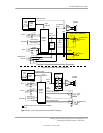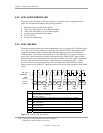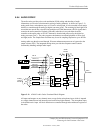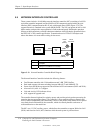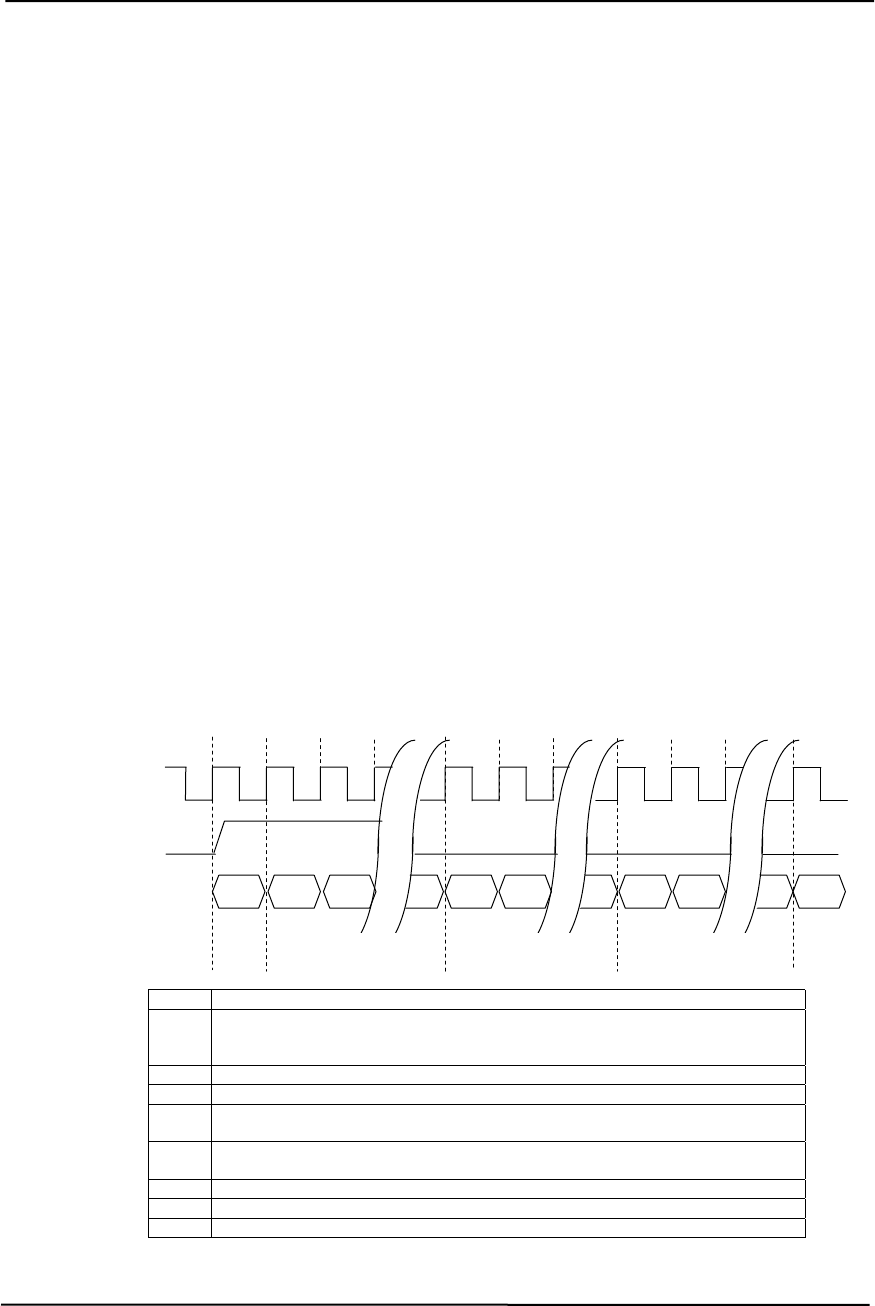
Chapter 5 Input/Output Interfaces
5.8.2 AC97 AUDIO CONTROLLER
The AC97 Audio Controller is a PCI device (device 31/function 5) that is integrated into the
82801 ICH component and supports the following functions:
♦
♦
♦
♦
♦
♦
Read/write access to audio codec registers
16-bit stereo PCM output @ up to 48 KHz sampling
16-bit stereo PCM input @ up to 48 KHz sampling
Acoustic echo correction for microphone
AC’97 Link Bus
ACPI power management
5.8.3 AC97 LINK BUS
The audio controller and the audio codec communicate over a five-signal AC97 Link Bus (Figure
5-12). The AC97 Link Bus includes two serial data lines (SD OUT/SD IN) that transfer control
and PCM audio data serially to and from the audio codec using a time-division multiplexed
(TDM) protocol. The data lines are qualified by a 12.288 MHz BIT_CLK signal driven by the
audio codec. Data is transferred in frames synchronized by the 48-KHz SYNC signal, which is
derived from the clock signal and driven by the audio controller. The SYNC signal is high during
the frame’s tag phase then falls during T17 and remains low during the data phase. A frame
consists of one 16-bit tag slot followed by twelve 20-bit data slots. When asserted (typically
during a power cycle), the RESET- signal (not shown) will reset all audio registers to their default
values.
Bit 0
Bit 0
Bit 0
T1 T2
Codec
Ready
Bit 19
Bit 18
Bit 19
Bit 18
Bit 19
T18 T19
Bit 15
Bit 14
Slot 2
(Data)
Slot 1
(Data)
Slot 0
(Tag)
T58
T38 T39
BIT_CLK
(12.288 MHz)
SYNC
(48 KHz)
SD OUT
or SD IN
Slot Description
0 Bit 15: Frame valid bit
Bits 14-3: Slots 1-12 valid bits
Bits 2-0: Codec ID
1 Command address: Bit 19, R/W; Bits 18..12, reg. Index; Bits 11..0, reserved.
2 Command data
3 Bits 19-4: PCM audio data, left channel (SD OUT, playback; SD IN, record)
Bits 3-0 all zeros
4 Bits 19-4: PCM audio data, right channel (SD OUT, playback; SD IN, record)
Bits 3-0 all zeros
5 Modem codec data (not used in this system)
6-11 Reserved
12 I/O control
Figure 5-11. AC’97 Link Bus Protocol
5-28 Compaq Evo and Workstation Personal Computers
Featuring the Intel Pentium 4 Processor
Second Edition – January 2003










